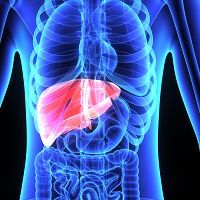Article
Gout Medications Protect Against Alcoholic Liver Inflammation
Author(s):
Two commonly prescribed gout therapies have also been shown to successfully treat another life-altering condition, researchers reported.

Two commonly prescribed gout therapies have also been shown to successfully treat another life-altering condition, researchers reported.
While moderate alcohol consumption has been tied to some health benefits, overconsumption can lead to alcoholic liver disease (ALD). Inflammation is responsible for the severity and the use of drugs to treat the disease is not unanimously accepted. However, researchers found that two gout medications which zone in on uric acid and adenosine triphosphate (ATP) could be a valuable approach.
The team used mice and immune cells from humans to test the method and outlined the findings in the Journal of Leukocyte Biology. The human immune cells were put in a test tube and exposed to alcohol-treated human hepatocytes.
“Results indicated that uric acid and ATP, components released from alcohol-damaged hepatocytes, activated the inflammasome, a component of the innate immune system,” a news release explained.
The mouse immune cells were separated into four groups. The first consisted of ‘normal’ mice and the second had animals deficient in the NLRP3 inflammasome component — both were given a chronic alcohol-containing diet. The third group were ‘normal’ mice and the fourth had the same NLRP3 deficiency – however, these animals received a control alcohol-free diet.
None of the animals on the alcohol-free diet showed signs relating to ALD. On the other hand, the mice on the chronic alcohol diet who were also classified as ‘normal’ developed ALD symptoms. However, the same wasn’t observed in the NLRP3-deficient group on the alcohol diet.The liver damage caused by alcohol was linked to increased levels in uric acid and ATP.
“We are increasingly appreciating the central role of inflammation of immune responses in a variety of diverse diseases,” John Wherry, PhD, deputy editor of the journal, said in the statement. “The link between alcohol induced tissue damage and sensing by the immune system through the inflammasome opens the door for new therapeutics targeting this type of inflammation in liver disease.”
The results warrant human clinical trial consideration, the news release said, to further uncover evidence backing the gout medications to treat ALD.
“This study should ultimately help patients with alcoholic liver disease to prevent and/or treat acute episodes of alcoholic hepatitis, a potentially lethal condition,” said one of the authors Gyongyi Szabo, MD, PhD, of the University of Massachusetts Medical School.





